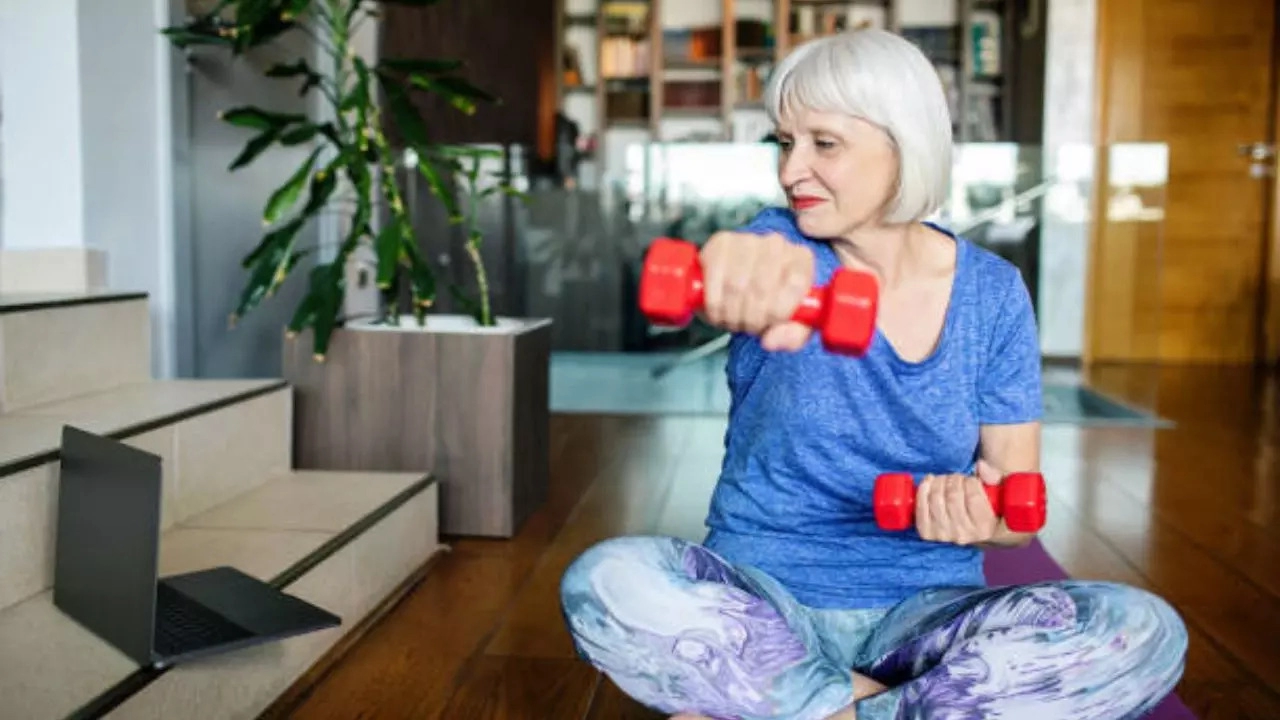Ashima Sharda Mahindra • 08 Sep 2024
How To Keep Your Bones Strong For A Lifetime, Suggested By An Expert

Women in the perimenopause and menopause stages are at a heightened risk of developing inflammation and pain in their bones
Every year, your bone health dwindles by at least 15 per cent from your spine and 5-6 per cent from your hips. The process of remodeling – as experts say, is normal as you age and with every passing decade, your entire skeleton rebuilds. And with ageing, wear, and tear happen in which bone grows older faster than it gets replaced - increasing the risk of low bone density and osteoporosis – a kind of arthritis that leads to fractures of the hip, spine, and wrist.
However, according to experts, osteoporosis can be prevented and even treated. How? Let’s find out.
According to Dr. Paul Rackoff, a rheumatologist with NYU Langone and clinical professor in the Department of Medicine a NYU Grossman School of Medicine, there are a few important steps you need to take from a young age to prevent the onset of this degenerative disease later.
When does osteoporosis begin to set in?
According to Dr. Rackoff, women in the perimenopause and menopause stages are at a heightened risk of developing inflammation and pain in their bones. Experts usually blame it on falling estrogen levels – an important hormone that helps in bone remodeling.
It is estimated that around 10.2 million people, who are older than 50 years have osteoporosis, and about 43.3 million more people have low bone mass, which puts them at high risk for osteoporosis.
Women with hormonal disorders like hyperthyroidism hyperparathyroidism, and the endocrine condition Cushing’s syndrome also have a greater chance of developing osteoporosis. Apart from that those with inflammatory diseases like Parkinson’s, inflammatory bowel disease, recurrent lung infections, and skin problems like eczema and psoriasis are also at high risk for osteoporosis.
How to keep your bones strong?
According to Dr. Rackoff, the best way to care for your bones is to regularly get screening done to know what condition they are in. A dual-energy X-ray absorptiometry or DEXA scan is the gold standard for osteoporosis and low bone mass screening and diagnosis. Apart from being painless, it is also a low-dose X-ray that helps assess the mineral content of the bones in just 15-20 minutes.
A bone density test is recommended for:
- Women 65 years and older
- Men 70 years and older
- Anyone who has broken a bone after 50 years
According to the CDC, you must get at least two strength-training sessions every week, to help maintain your bone density without medication.
Other ways to build your bones
A few ways other than these two to make your bones strong include:
Diet
Experts say vegetables are great for your bones, as they are loaded with vitamin C, which stimulates the production of bone-forming cells and provides antioxidants, which protect the bone cells from damage.
Eat enough protein
Getting protein in all your meals is important for healthy bones since 50 per cent of these are made of protein. Experts say low protein intake decreases calcium absorption and may also affect rates of bone formation and breakdown.
Get Latest News Live on Times Now along with Breaking News and Top Headlines from Health and around the world.